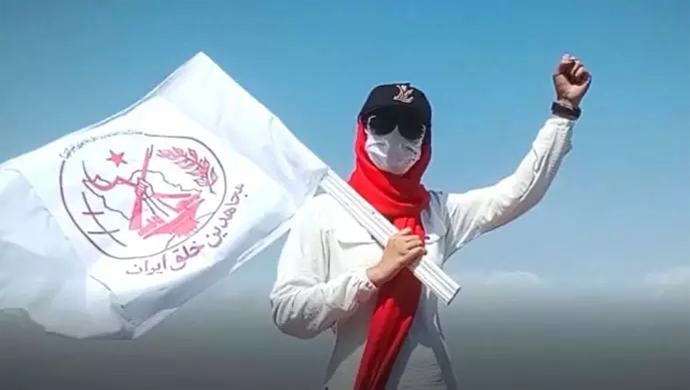Dictators tend to create an image of immortality of themselves when they are in power. But after their ousted, in hindsight, their weakness and fragility become undeniable.
Forty-three years ago, during a speech at Tehran University, senior PMOI member Mousa Khiabani told PMOI supporters, “The future belongs to you. Have faith in this. Be sure that the future belongs to you, to the revolutionaries. The mortal forces will be eliminated.”
Today, the truth of those comments can be seen in the disarray that has engulfed the mullahs’ regime, to which regime authorities are admitting.
On December 29, 2023, Mohammad Taghi Akbarnejad, a mullah with close ties to regime authorities, warned about the threat of the regime being overthrown and said, “If we continue down this path, our downfall is inevitable… These people will deliver the blow unexpectedly. They have proven throughout history that they will deliver the blow instantly.”
On January 1, journalist Shahab Tabatabaei told the official IRNA news agency that “If anything happens in this country” the people will make no difference between so-called reformist and hardliner figures: “The distance between Seyyed Mohammad Khatami and Seyyed Ahmad Khatami will be six poles.”
This is just a sample of the warnings that regime officials and insiders are voicing and are testament to the four-decade battle between the people and the Iranian Resistance on one side, and the criminal regime on the other.
Khomeini was determined to destroy the PMOI down to the last supporter who read the organization’s daily paper. Khomeini went every mile to achieve this goal, including the massacre of more than 30,000 political prisoners in 1988. But his regime failed to eliminate the resistance movement and its deep roots in Iran’s society.
After this defeat, the regime shifted its method, complementing its torture, executions, and assassinations, with complete silence about the organization and going as far as to deny its existence.
But the regime soon found out that this poor effort to erase the PMOI had the reverse effect of rallying more people to the Iranian Resistance.
The regime was forced to revise its policy. On June 24, 2022, Kazem Gharibabadi, the international deputy of the head of the regime’s judiciary, said to state television, “In a period, the belief was that there is no need to mention the PMOI. But we don’t believe that now.” He also added, “There is no meeting in which we don’t discuss the PMOI.”
On July 18,2022, Javad Muguee, one of the regime’s propagandists and filmmakers, said during an interview, “During the 1990s, the policy of the television was to no talk about the PMOI, that they were finished. In the 2000s, they rebuilt themselves in public opinion. What was the main issue during the 2017 elections? The 1988 executions [of PMOI members].” At the time, Ebrahim Raisi’s role in the execution of PMOI members became a main issue of contention and gained him the title “Ayatollah of executions” and “Raisi the executioner.”
This issue was again in a televised roundtable on August 2, 2023, when a panel of regime analysts discussed the role of the PMOI in Iran.
Mohammad Quchani, one of the participants in the discussion, said, “We have to know that the Mojahedin-e Khalgh issue is the issue of our day and it is not just a historical issue.”
To eliminate this issue, the regime has rallied all its forces and resources inside Iran and abroad and is spending tremendous sums to spin lies, create movies and TV series, and write hundreds of books, and set up a farcical trial of PMOI members to tarnish the image of the Iranian Resistance. But as before their efforts have had a reverse effect, to the point that Gholamali Haddad Adel, the former Speaker of the Majlis, said, “The lack of knowledge about the crimes of the [PMOI], which is the result of the poor efforts of the cultural and information apparatus in the past years, has affected the judgement of the people toward the [PMOI].”
This is ultimate testament to the speech of Mousa Khiabani, who 43 years ago said, “The PMOI can’t be destroyed. You might kill us. You might imprison us. But the PMOI can’t be destroyed. Hasn’t this been proven in the past? This belief will remain because it is just. It will find its way in society and history. If this flag falls from our hands today, another hand will grasp it. So we have the right to be hopeful. We have the right to not fear danger and embrace it. We have the right to laugh at conspiracies and conspiration makers.”
Today, 42 years after the regime killed Mousa Khiabani in Tehran on February 8, 1982, the regime continues to sink in the swamp of its crises and its failure to extinguish the flame of resistance while youths across Iran continue to commemorate Khiabani and celebrate the sacrifices of PMOI martyrs. This is the true meaning of immortal heroes and mortal dictators.





